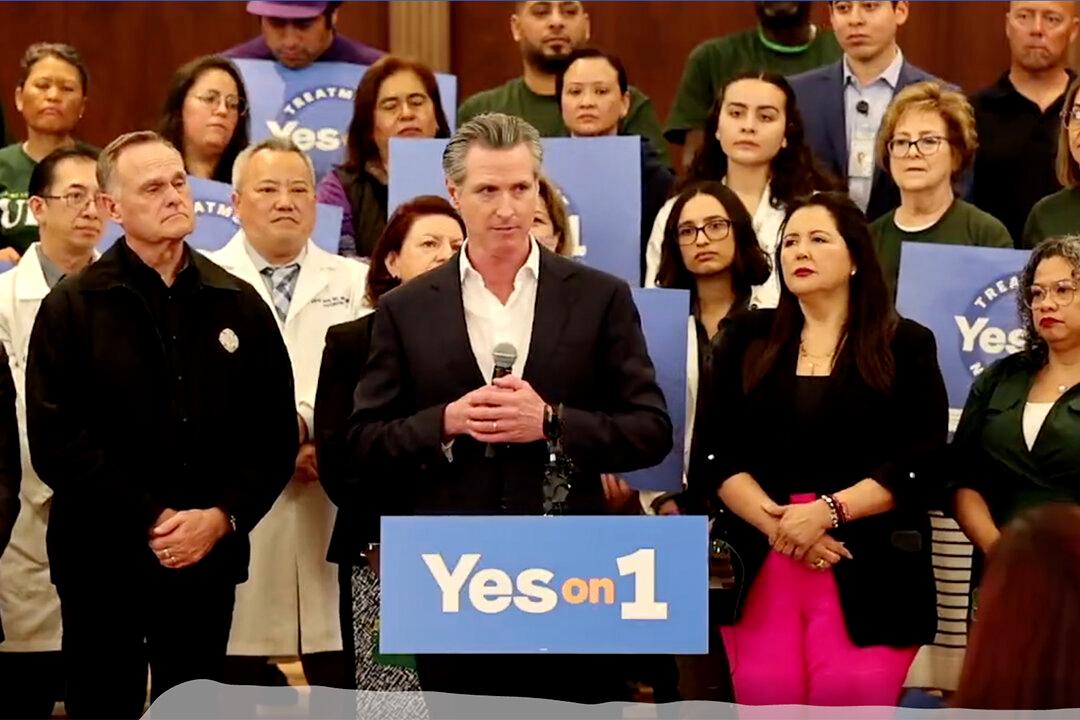As votes continue to roll in, the lead opponent against Proposition 1 announced March 18 that they will revive their campaign after conceding just last week.
The change comes as a “razor-thin margin” persists, with the ballot measure leading by fewer than 20,000 votes out of 7.5 million cast, according to Californians Against Prop. 1 in a press release on Monday.





